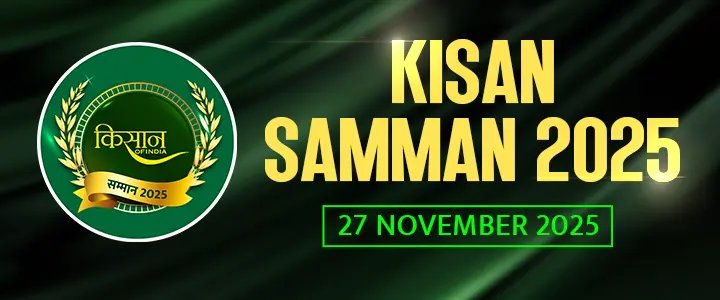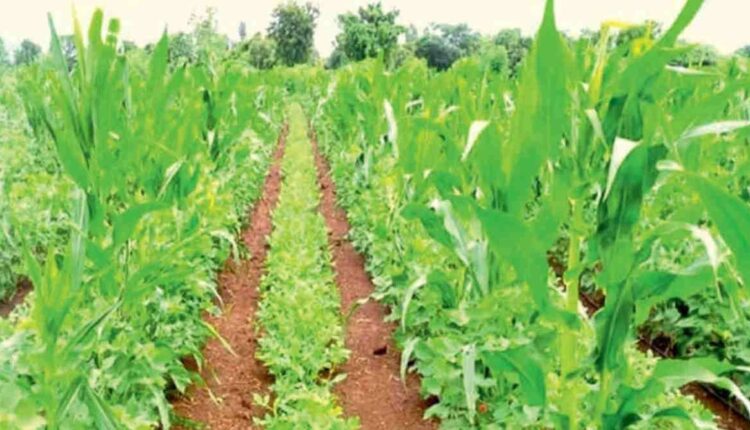Farmers in Uttar Pradesh are managing crop residue with Rapid Composting Technology
Farmers in Uttar Pradesh: In rural areas of Uttar Pradesh, where rice and wheat are the predominant cropping system, crop residue management has remained a major challenge for a long time. Farmers get only a short period between harvesting paddy and sowing of wheat every year, often forcing them to burn paddy stubble in their fields.
In Uttar Pradesh alone, about 20 million tonnes of paddy straw is generated every year, which has become a major problem for the environment. Some of this crop residue is used as domestic energy and animal feed, but most of it is either wasted or destroyed by burning. This situation reflects environmental damage and loss of organic matter, and a sustainable solution was needed. This is where Rapid Composting Technology developed by ICAR-National Bureau of Agriculturally Important Microorganisms has provided a solution for both farmers and the environment.
Use of new Composting Techniques
Chandrapal Chauhan, chairman of Daphehri Farmers Company Private Limited (DFPCL), recognised the potential of this composting technology and started spreading it among farmers. He partnered with ICAR-NBAIM to adopt Rapid Composting Technology. Under this partnership, a network of over 500 farmers was created across 14 districts.
These farmers were trained in the composting process, which involved chopping crop residues into small pieces, mixing them with a decomposer like Kush Biofast, jaggery and cow dung, and placing them in specially designed composting bags. In just 60 days, these materials were transformed into high-quality organic manure, which farmers used in the fields.
Impact and Consequences
The impact of Rapid Composting Technology was immediate and profound. More than 200 composting bags were installed in 14 villages, and farmers enthusiastically adopted the technology. Where earlier they would burn paddy straw, they now converted it into valuable compost. Most farmers used this compost in their own fields, increasing soil fertility and reducing dependence on chemical fertilizers. As a result of this process, about 70 acres of agricultural land was composted, reducing the cost of chemical inputs by 25-30%. Farmers saved an average of Rs 5,000 annually per acre.
Rapid Composting Technology not only improved soil health but also created a new income source for farmers. During the reporting period, the network produced 80 tonnes of compost, out of which 2 tonnes were sold in the market at Rs 30 per kg. This sale provided additional income of Rs 60,000 to the farmers, which proved to be a significant economic help for them.
Advantages of Rapid Composting Technology
Rapid Composting Technology revolutionized the agricultural practices of farmers. By adopting this technology, farmers not only reduced environmental pollution but also improved their crop productivity and economic condition. This initiative proved that sustainable agricultural practices can not only be beneficial for the environment, but they can also be beneficial from an economic point of view. It has become a model that can be adopted in other areas as well, where the problem of crop residue management is seriously prevalent.
This successful collaboration between ICAR-NBAIM, DFPCL, and the farmers of Mau district has proven that if farmers get the right training, technology, and support, they can find solutions to environmental problems on their own farms. As a result, they can achieve healthier soil, have less environmental impact, and make their farming more profitable.
Future Prospects
The success of Rapid Composting Technology has inspired other farmers across Uttar Pradesh as well. In the coming years, it is expected that more farmers will adopt this technology, which will reduce the practice of crop residue burning and promote organic farming. Moreover, such technologies help farmers get more value from their farms, thereby improving rural livelihoods and contributing to environmental conservation.
The impact of this locally developed and adopted composting technology shows how small changes can bring big results. This initiative has given an impetus towards the adoption of composting technology not only in Uttar Pradesh, but also in other parts of India. Where crop residue management remains a significant challenge, adopting this technology can solve environmental problems and improve the lives of farmers.
Conclusion
Rapid Composting Technology has proven how science and innovation can transform agricultural practices to achieve better results for farmers. It is a perfect example of how when we adopt sustainable solutions, not only our environment is protected, but farmers’ income also increases. Seeing this success, other sectors will also be inspired to adopt this technology, and this will bring prosperity and stability to rural areas of India.
Contact us- If farmers want to share any valuable information or experiences related to farming, they can connect with us via phone or whatsApp at 9599273766 or you can write to us at [email protected]. Through Kisan of India, we will convey your message to the people, because we believe that if the farmers are advanced then the country is happy.



